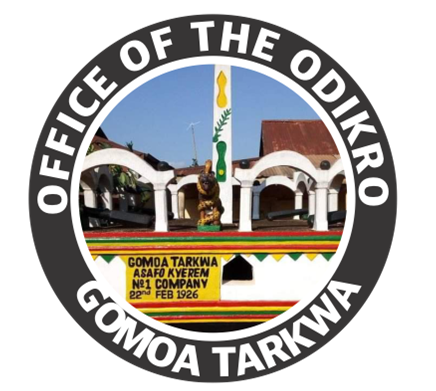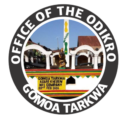Historical Significance of the Office of the Odikro
The Office of the Odikro in Gomoa Tarkwa Township has a rich historical tapestry that dates back several centuries. The title of Odikro, translating to “owner of the town” in Akan, signifies a paramount position within the local governance structure. The origins of the Odikro title are intertwined with the establishment of the Gomoa Tarkwa community, serving as a cornerstone for both administrative and social frameworks. Traditionally, the Odikro has been more than just a leader; they have played a crucial role in maintaining order, overseeing land allocations, and ensuring the well-being of the community members.
Over time, the role of the Odikro has evolved to adapt to changing socio-political landscapes. Initially, the position was hereditary, passed down through familial lines, ensuring continuity and stability. Notable past Odikros have left indelible marks on the township, guiding it through periods of both prosperity and adversity. For instance, Odikro Kwesi Amissah is remembered for his efforts in unifying the community during the early 19th century, while Odikro Nana Essel’s reign in the late 20th century is noted for significant infrastructural developments, including the establishment of schools and healthcare facilities.
The cultural and traditional importance of the Odikro is deeply embedded in the community’s identity. Various ceremonies and rituals underscore the office’s significance, such as the enstoolment ceremony, which is a vital cultural event marking the installation of a new Odikro. These ceremonies are not only symbolic of the transfer of authority but also serve to reaffirm the community’s unity and cultural heritage. Furthermore, the Odikro plays an essential role in traditional festivals, presiding over events that celebrate communal achievements and pay homage to ancestors.
Understanding the historical significance of the Office of the Odikro provides a window into the enduring legacy and cultural heritage of Gomoa Tarkwa. It highlights how the Odikro’s leadership has been instrumental in shaping the township’s identity, fostering a sense of community, and navigating the complexities of governance over the centuries.
Contemporary Role and Functions of the Odikro
The contemporary role of the Odikro in Gomoa Tarkwa Township remains significant, though it has evolved to adapt to modern governance structures. The Odikro continues to serve as the primary traditional authority, responsible for maintaining peace and unity within the community. One of the key functions is conflict resolution; the Odikro acts as a mediator in disputes, ensuring that issues are resolved amicably and that community harmony is preserved. This role is particularly crucial in a society where traditional and communal values are deeply respected.
In terms of administrative duties, the Odikro oversees community development projects and initiatives. This includes the planning and implementation of infrastructure projects, such as the construction of roads, schools, and healthcare facilities, which are essential for the township’s growth and development. The Odikro’s leadership extends to representing the community in broader regional matters, liaising with local government officials, and advocating for the township’s needs and interests.
The interaction between the Odikro and other local and regional authorities is pivotal. The Odikro collaborates with elected officials, non-governmental organizations, and other stakeholders to address the community’s challenges and leverage resources for development. This partnership is a testament to the Odikro’s ability to navigate both traditional and contemporary governance systems effectively.
Balancing traditional practices with contemporary demands presents a unique set of challenges. The Odikro must ensure that cultural heritage is preserved while also embracing modernity. This often involves integrating traditional ceremonies and customs with new societal norms and expectations. The current Odikro has been instrumental in organizing cultural festivals that not only celebrate heritage but also attract tourism and boost the local economy.
One notable example of the Odikro’s leadership is the recent initiative to improve educational facilities in Gomoa Tarkwa. By working with local authorities and international donors, the Odikro facilitated the renovation of several schools, significantly enhancing the quality of education for the youth. This project underscores the Odikro’s commitment to community development and his ability to adapt traditional roles to meet contemporary needs.
The office of the Odikro remains a pillar of leadership in Gomoa Tarkwa Township, bridging the gap between tradition and modernity. The Odikro’s role is indispensable in fostering community cohesion, promoting development, and ensuring that the township remains vibrant and progressive in an ever-changing world.


